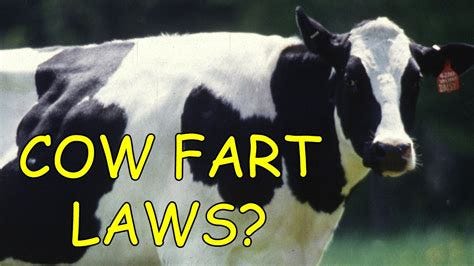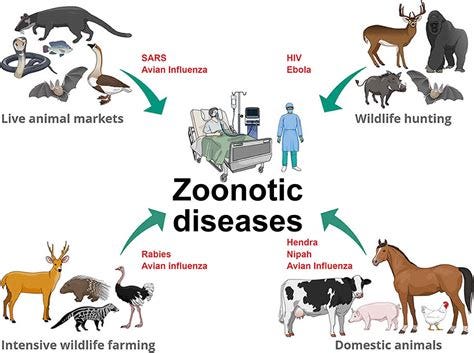Are you a Stakeholder, I mean steak-holder?
getting harder and harder to maintain a clean carnivore diet.
If you’ve visited the meat aisle lately, you might wonder if you’re trying to buy a house rather than a steak. The price of your once-humble ribeye has skyrocketed, and it seems like we’re now living in a world where being a “steak-holder” is a luxury reserved for the elite. Who knew carnivores would be seen as high-rolling, bougie outcasts? But here we are fighting for a clean, protein-packed diet in a world where cricket dust is cheap, and sirloin is practically listed on the stock exchange.
Why is it that every time you crave a T-bone, you feel like you're about to hand over a mortgage payment? We can thank the government’s steady diet of red tape, regulations, and “well-intentioned” but disastrous interventions. They've worked hard to ensure that inflation isn't just a "thing," but a lifestyle. It’s almost like they want to test just how resilient we can be, especially those of us who believe in the power of a meat-based diet.
Between carbon taxes, supply chain issues, and the push to “save the planet” by limiting livestock farming, governments have made it as difficult as possible to sustain a clean carnivore diet. Is it any wonder they’re pushing plant-based alternatives with the enthusiasm of a used-car salesman? Spoiler alert: Not everyone’s into lab-grown burgers and “Beyond” mystery meat patties or the governments latest craze BUGS.. But hey, as long as the cows aren’t farting us into climate doom, right?
You’ve probably heard the same tired refrain: “Just eat less meat. It’s better for the environment!” Meanwhile, they continue to subsidize questionable agricultural practices and promote diets that would make cavemen weep. As if reducing our intake of naturally raised, nutrient-dense animal products is the solution to every global problem.
But here’s the truth: You don’t need to be a billionaire to afford clean, nourishing food. You shouldn’t have to pay a premium for following a diet that’s been around since, well, forever. Yet, with the way things are headed, steak could soon be a black-market item, tucked behind the shelves of plant-based “proteins,” reserved only for those willing to barter their souls for a slab of beef.
Let’s talk about Bill C-293, the subtle power play disguised as pandemic prevention but with far-reaching implications, including dictating what we eat. At first glance, this bill might seem like another benign attempt to prepare for future global health crises. But dig a little deeper, and you’ll find it has the potential to influence far more than just how we handle pandemics…it could shape our diets in the name of “public safety.”
In a world where global health policy and environmental goals are becoming increasingly intertwined, Bill C-293 paves the way for the government to use "pandemic prevention" as a cover for controlling our food supply. It aligns with global agendas like those of the United Nations and its Sustainable Development Goals (SDGs), where reducing livestock farming and promoting plant-based diets is part of the narrative. Of course, all of this is cloaked under the guise of “preventing future pandemics.”
How, you ask? By linking zoonotic diseases (infections that jump from animals to humans) to livestock farming, the bill gives the government more power to restrict the production and consumption of animal products. They’re already testing the waters with carbon taxes on meat producers, pushing for lab-grown alternatives, and rolling out plant-based subsidies. Now, imagine a scenario where pandemic preparedness includes "guidelines" on limiting meat consumption to protect public health, because who knows, your next ribeye could be a virus vector.
In this way, Bill C-293 is about more than managing pandemics…it’s about reshaping society’s relationship with food in ways that align with unelected global bodies. The bill doesn’t just prepare for emergencies; it sets the stage for dictating lifestyle choices, including what you’re allowed to put on your plate. It’s a quiet step toward making your carnivore diet not just unaffordable but possibly unsanctioned.
So, while they talk about health, safety, and sustainability, let’s be clear: when it comes to your steak, they’re raising the stakes.
So, fellow steak-holders, stand firm. Grill on. Every sizzling bite is a reminder that while governments may raise the stakes, they can’t take away our love for meat. Because at the end of the day, nothing beats the primal satisfaction of a perfectly seared steak…go for organic if at all possible
WE MUST STOP THESE GLOBAL PSYCHOPATHS
TAKE ACTION TO STOP BILL C-293 NOW! go to StopC-293.ca
StopC-293.ca your one stop shop to take action, learn more about this egregious bill that stands to change Canada forever, and watch interviews with Lawyer Lisa
Most importantly click the action page to send your elected officials letters demanding they STOP this bill
Please share share share, this bill has passed 3 rounds in the house and 1 in the Senate…IT MUST BE STOPPED NOW!









It is tougher than you think. Safeways, IGA Sobeys all Loblaws stores are allowing Glyphosate into all their meats. It could be that the farmers are feeding their animals plants that have been sprayed with Glyphosate to control weeds, however it is persistent and follows up the food chain appearing in the meat, fruits and veggies.
We must remove all Glyphosate from being sold, distributed and used everywhere in the world.
WE ARE PAYING OUTRAGEOUSLY FOR OUR OWN DEMISE!
Glyphosate is not likely in fish if they are cold packed or frozen. If the fish is packed in water or oil, then the potential exits to add poisons like Glyphosate or the bioweapon they have misnamed as a 'vaccine'. Remember, the people who are trying to depopulate the world are out to remove 90%+ of the entire population of the world. The only way to avoid Glyphosate is to buy direct from a farmer (Farmers Markets) and you need to check to ensure that they do not use herbicides. Glyphosate is persistent in plants. It lasts for 20 years. Carbon in the form of Charcoal will lock up Glyphosate. All water (including all liquid products made with water) you drink should be filtered with a carbon filter.
Here is a link to Dr Don Huber who explains Glyphosate, What it is, where it came from and how it works to reduce necessary minerals, enzymes & metals and allow damaging minerals, enzymes and metals. Bacteria and fungus are necessary for life but some of them will destroy life. Dr Don Huber explains the concept. BTW, Viruses DO NOT EXIST!
https://rumble.com/v4qxtp6-don-huber-glyphosate-dangers-and-soil-remediation-22-apr-2024.html
Q. If you find glyphosate in any food product can you sue the provider of that food?